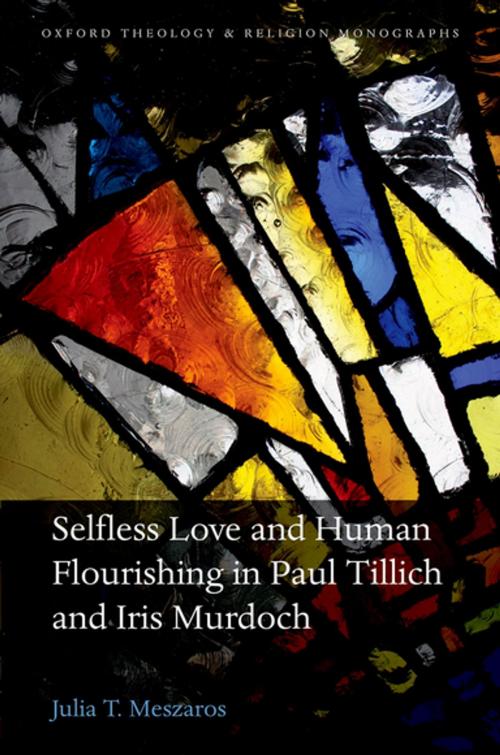Selfless Love and Human Flourishing in Paul Tillich and Iris Murdoch
Nonfiction, Religion & Spirituality, Theology, Philosophy| Author: | Julia T. Meszaros | ISBN: | 9780191078361 |
| Publisher: | OUP Oxford | Publication: | March 3, 2016 |
| Imprint: | OUP Oxford | Language: | English |
| Author: | Julia T. Meszaros |
| ISBN: | 9780191078361 |
| Publisher: | OUP Oxford |
| Publication: | March 3, 2016 |
| Imprint: | OUP Oxford |
| Language: | English |
In an age of self-affirmation and self-assertion, 'selfless love' can appear as a threat to the lover's personal well-being. This perception jars with the Biblical promise that we gain our life through losing it and therefore calls for a theological response. In conversation with the Protestant theologian Paul Tillich and the atheistic moral philosopher and novelist Iris Murdoch, Selfless Love and Human Flourishing in Paul Tillich and Iris Murdoch enquires into the anthropological grounds on which selfless love can be said to build up, rather than undermine, the lover's self. It proposes that while the implausibility of selfless love was furthered by the modern deconstruction of the self, both Tillich and Murdoch utilize this very deconstruction towards explicating and restoring the link between selfless love and human flourishing. Julia T. Meszaros shows that they use the modern diagnosis of the human being's lack of a stable and independent self as manifest in Sartre's existentialism in support of an understanding of the self as relational and fallen. This leads them to view a loving orientation away from self and a surrender to the other as critical to the full flourishing of human selfhood. In arguing that Tillich and Murdoch defend the link between selfless love and human flourishing through reference to the human being's ontological selflessness, Meszaros closely engages Søren Kierkegaard's earlier attempt to keep selfless love and human flourishing in a productive, dialectical tension. She also examines the breakdown of this tension in the later figures of Anders Nygren, Simone Weil, and Jean-Paul Sartre, and addresses the pitfalls of this breakdown. Her examination concludes by arguing that the link between selfless love and human flourishing would be strengthened by a more resolute endorsement of a personal God, and of the reciprocal nature of selfless love.
In an age of self-affirmation and self-assertion, 'selfless love' can appear as a threat to the lover's personal well-being. This perception jars with the Biblical promise that we gain our life through losing it and therefore calls for a theological response. In conversation with the Protestant theologian Paul Tillich and the atheistic moral philosopher and novelist Iris Murdoch, Selfless Love and Human Flourishing in Paul Tillich and Iris Murdoch enquires into the anthropological grounds on which selfless love can be said to build up, rather than undermine, the lover's self. It proposes that while the implausibility of selfless love was furthered by the modern deconstruction of the self, both Tillich and Murdoch utilize this very deconstruction towards explicating and restoring the link between selfless love and human flourishing. Julia T. Meszaros shows that they use the modern diagnosis of the human being's lack of a stable and independent self as manifest in Sartre's existentialism in support of an understanding of the self as relational and fallen. This leads them to view a loving orientation away from self and a surrender to the other as critical to the full flourishing of human selfhood. In arguing that Tillich and Murdoch defend the link between selfless love and human flourishing through reference to the human being's ontological selflessness, Meszaros closely engages Søren Kierkegaard's earlier attempt to keep selfless love and human flourishing in a productive, dialectical tension. She also examines the breakdown of this tension in the later figures of Anders Nygren, Simone Weil, and Jean-Paul Sartre, and addresses the pitfalls of this breakdown. Her examination concludes by arguing that the link between selfless love and human flourishing would be strengthened by a more resolute endorsement of a personal God, and of the reciprocal nature of selfless love.















